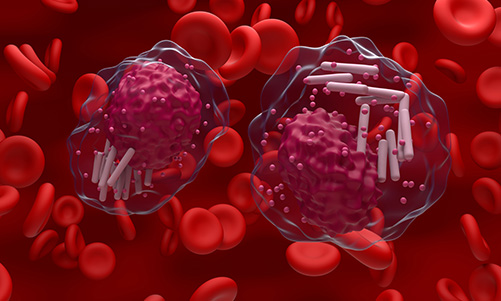Chronic myelogenous leukaemia (CML), also referred to as chronic myelogenous leukaemia, is a slow-growing, rare type of cancer affecting the bone marrow. It starts in the blood-forming cells in the bone marrow. CML can lead to shortness of breath, fever, night sweats, unexplained weight loss, abdominal swelling, and more. People with CML may have an increased risk of other types of cancer, including thyroid cancer, stomach cancer, lung cancer, prostate cancer, and more.
Consult with best oncologists for chronic myelogenous leukemia treatment at the CK Birla Hospital.

Chronic myelogenous leukaemia is a condition characterised by overproduction of white blood cells. CML usually affects older adults and rarely affects children, however, it can affect anyone at any age. The cause behind is the change in the bone marrow cells by something, it is not clear what exactly starts this process. Men are slightly more at risk of developing CML, and exposure to radiation is also linked to an increased risk of developing CML.
Note: These costs are approximate and can vary based on factors such as the healthcare facility’s location, the patient’s specific condition, and the treatment protocol.
No, chronic myeloid leukaemia is not a hereditary disease.
Some of the foods to avoid during chronic myeloid leukaemia treatment include undercooked meats, seafood, eggs, etc.
With proper management, particularly with tyrosine kinase inhibitors, patients have a long-term survival rate.
Yes, chronic myeloid leukaemia can lead to bone weakening.